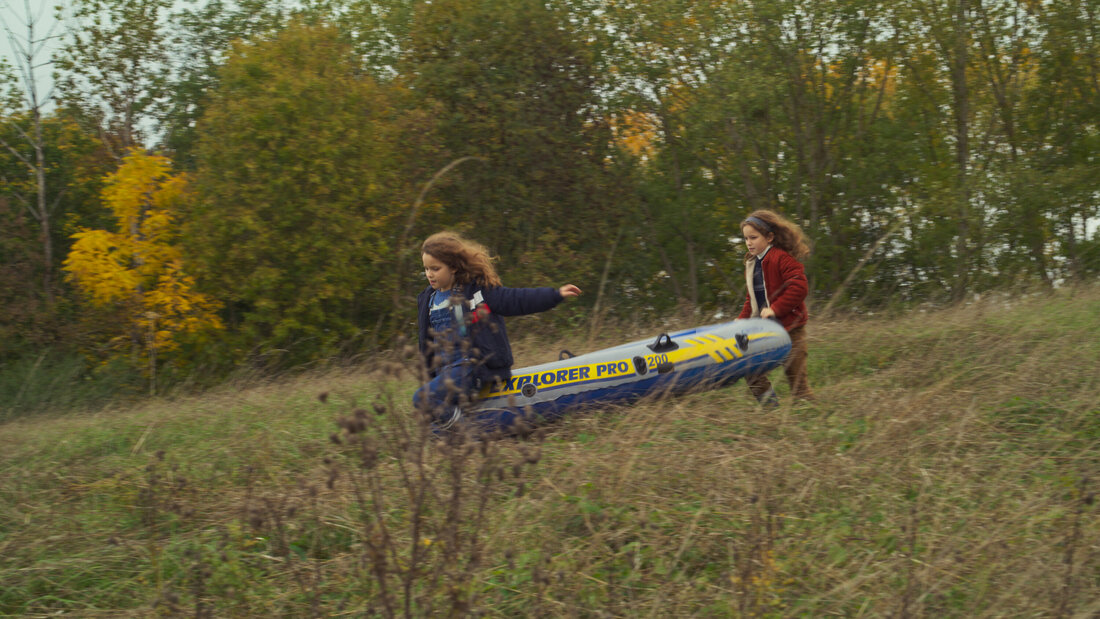Petite Maman has no explanations for how Nelly is visiting the past versions of her mom and grandma, and it doesn’t need them. Sciamma has figured out what the audience needs for this story to have a maximal effect, and gives them exactly that. The opening scene is in a French nursing home, with Nelly playing word games with an elderly woman. This might be her grandma, but she’s actually saying goodbye to this woman, followed by a few others. She finally gets to a room with Mom in it, packing up Grandma’s things. This introduction has an economy of storytelling that establishes Nelly as the kind of kid who made relationships with her Grandma’s hallmates, and is therefore a charming kid worthy of our time. The next scene also marks her as cute as hell, declaring Aperitif Time in the car and passing up cheese puffs and juice box sips to her driving Mother, who’s crinkling smile shows how much she loves this little ritual. Whatever time loop is happening in the woods is useless compared to these instances of finely observed behavior that only gets more affecting and endearing as Marion gets involved.
The Sanz girls are twins, so it’s no surprise that they have playful chemistry. The setting is likely contemporary, but there’s nothing modern for the girls to play with. They build a tree house together, dress up to act out a detective story, go boating, and giggle. They’re affectionate in the way children are, with arms creeping over shoulders and heads bouncing off each other. This being a French film, they’re also introspective with just the right amount of unforced wisdom. Petite Maman is almost voyeuristic, like the viewer is watching two real girls on a playground who are oblivious to the whole world beyond what they’re doing right now.
The film achieves its greatest impact through Nelly’s eyes as she furrows her brow and tries to understand the adults around her. Being in Mom’s old home is as close as Nelly can get to what Mom used to be like. In another beautifully rendered anecdote, Mom tells her that she remembers a shadow that looked like a panther on her bedroom wall. It would always move across her wall at night, but the trees have changed over the years and the shadow doesn’t happen anymore. Light coming through her window in a particular way made a huge impression on her, but it only existed for a brief period of time. It’s indicative of how impossible it is to really know one’s parents, and vice versa. Sciamma judges the relationship between two children to be the most honest and beautiful thing in the world, and it’s something that children and parents can never share, absent a few days of non-magical teleportation. Petite Maman provides a new standard for films about children, if not exactly for them. However, if eight year old girls can write a noir, they can sit still for 72 minutes and take in this stellar work. A

 RSS Feed
RSS Feed